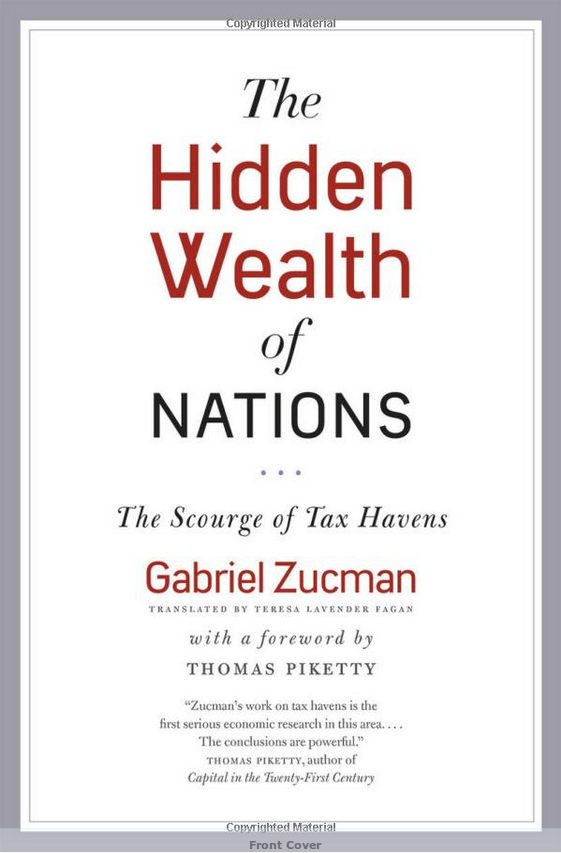
We are well aware of the rise of the 1% as the rapid growth of economic inequality has put the majority of the world’s wealth in the pockets of fewer and fewer. One much-discussed solution to this imbalance is to significantly increase the rate at which we tax the wealthy. But with an enormous amount of the world’s wealth hidden in tax havens—in countries like Switzerland, Luxembourg, and the Cayman Islands—this wealth cannot be fully accounted for and taxed fairly. No one, from economists to bankers to politicians, has been able to quantify exactly how much of the world’s assets are currently hidden—until now. Gabriel Zucman is the first economist to offer reliable insight into the actual extent of the world’s money held in tax havens. And it’s staggering.
In The Hidden Wealth of Nations , Zucman offers an inventive and sophisticated approach to quantifying how big the problem is, how tax havens work and are organized, and how we can begin to approach a solution. His research reveals that tax havens are a quickly growing danger to the world economy. In the past five years, the amount of wealth in tax havens has increased over 25%—there has never been as much money held offshore as there is today. This hidden wealth accounts for at least $7.6 trillion, equivalent to 8% of the global financial assets of households. Fighting the notion that any attempts to vanquish tax havens are futile, since some countries will always offer more advantageous tax rates than others, as well the counter-argument that since the financial crisis tax havens have disappeared, Zucman shows how both sides are actually very wrong. In The Hidden Wealth of Nations he offers an ambitious agenda for reform, focused on ways in which countries can change the incentives of tax havens. Only by first understanding the enormity of the secret wealth can we begin to estimate the kind of actions that would force tax havens to give up their practices.
Zucman’s work has quickly become the gold standard for quantifying the amount of the world’s assets held in havens. In this concise book, he lays out in approachable language how the international banking system works and the dangerous extent to which the large-scale evasion of taxes is undermining the global market as a whole. If we are to find a way to solve the problem of increasing inequality, The Hidden Wealth of Nations is essential reading.
Hvorfor peker de økonomiske pilene nedover i Norge? I 2013 hadde vi den beste kombinasjonen av velstand, helse og lykke i verden. Så ble vekst . . .
Scandinavian countries have been praised for their high levels of welfare provision and their economic and social outcomes. It is true that they are successful . . .
From world-renowned economist Paul Collier, a candid diagnosis of the failures of capitalism and a pragmatic and realistic vision for how we can repair it. . . .
Dette er en veldig oppklarende bok og det er ikke vanskelig å se for seg at andre som snakker fornuftig om økonomi, geografi, historie og . . .
Thing 1: There is no such thing as free market.Thing 4: The washing machine has changed the world more than the Internet.Thing 5: Assume the . . .
Brilliant and engagingly written, Why Nations Fail answers the question that has stumped the experts for centuries: Why are some nations rich and others poor, . . .
“If [ The End of Alchemy ] gets the attention it deserves, it might just save the world.” ―Michael Lewis, Bloomberg View Something is wrong . . .
In this highly readable and thought-provoking work, Nick Dyer-Witheford assesses the relevance of Marxism in our time and demonstrates how the information age, far from . . .
Thomas Pikettys bog «Kapitalen i det 21. århundrede» handler om økonomi, kapitalisme, ulighed, meritokrati og demokrati. Med «Kapitalen i det 21. århundrede» har Thomas Piketty . . .